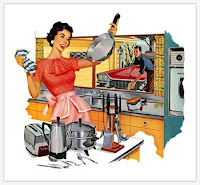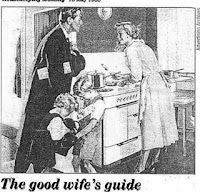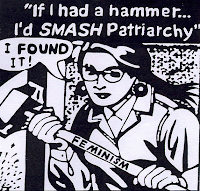Wednesday, 16 December 2009
Demographic trends since 1990
Sociology of childhood
There are alot of different approaches to the sociology of childhood and some focus upon the idea that children are weak and vulnerable and need to be protected (also known as the 'welfare approach or conventional approach and this is related to functionalism) and there is also the idea that children can be manipulative, controling and bad and this is called the control approach and is about the more negative aspects of childhood such as how they manipulate their parents and get what they want. Finally postman is 1983 declared that that childhood has disappeared and that the media has brought children in the adult world at the cost of their innocence. He has been criticised for this idea because childhood is a long way from disappearing and according to Lee, childhood has in fact become a lot more complex and ambiguous because children are both independant and dependant in the choices that they make and in the things that they do.
Wednesday, 18 November 2009
Decision making and power in households

Stepford Wive's

Two films of the same name have been adapted from the novel; the first starred Katharine Ross and was released in 1975, while a remake starring Nicole Kidman appeared in 2004. Edgar J. Scherick produced the 1975 version, all three sequels, and was posthumously credited as producer in the 2004 remake.
The term "Stepford wife", which is often used in popular culture, stemmed from the novel, and is usually a reference to a submissive and docile housewife.
The New and Improved Good Wife's Guide

As long as there is nothing living or breathing in the inch high dust that covers the TV, cabinets or shelves, it can wait. And if your washer, dryer or dishwasher are running when your husband comes home, well it's a sign that you've obviously been busy that day.
Building a fire is fun if you have a fireplace. And if you do, try not to "accidentally" knock your husband into it when he picks a fight even though that might bring you "immense personal satisfaction."
Be happy to see your husband, assuming he's on time and in a good mood. Be even happier if he brought home a paycheck.
Give him a hug when he walks in the door, if he doesn't smell of another woman's perfume, give him a kiss too. If you missed him, tell him. If you actually want to know how his day went, ask him. And if you love him, remind him.
Make a list of all of the things you need or want to tell your husband when he comes home. In the midst of football, ballet, tuba and soccer practice you'll most likely forget. And this way you can hit every topic over dinner. Giving pop quizzes afterwards always helps to drive your points across, although it might make him mad and then he "might" have a fireplace accident.
The good wife's guide

Have dinner ready. Plan ahead, even the night before, to have a delicious meal ready, on time for his return. This is a way of letting him know that you have been thinking about him and are concerned about his needs. Most men are hungry when they come home and the prospect of a good meal (especially his favorite dish) is part of the warm welcome needed.
Prepare yourself. Take 15 minutes to rest so you'll be refreshed when he arrives. Touch up your make-up, put a ribbon in your hair and be fresh-looking. He has just been with a lot of work-weary people.
Be a little gay and a little more interesting for him. His boring day may need a lift and one of your duties is to provide it.
Clear away clutter. Make one last trip through the main part of the house just before your husband arrives.
Gather up schoolbooks, toys, paper, etc and then run a dustcloth over the tables.
Over the cooler months of the year you should prepare and light a fire for him to unwind by. Your husband will feel he has reached a haven of rest and order, and it will give you a lift too. After all, catering for his comfort will give you immense personal satisfaction.
Prepare the children. Take a few minutes to wash the children's hands and faces (if they are small), comb their hair, and if neccesary, change their clothes. They are little treasures and he would like to see them playing the part. Minimise all noise. At the time of his arrival, eliminate all noise of the washer, dryer or vacuum. Try to encourage the children to be quiet.
Be happy to see him.
Make the evening his. Never complain if he comes home late, or goes out to dinner, or other place of entertainment without you. Instead, try to understand his world of strain and pressure and his very real need to be at home and relax.
Domestic labour and gender roles in the family

Thursday, 5 November 2009
The family and post modernism

Wednesday, 21 October 2009
People are having fewer children and having them later in life.

- People are having fewer children. The average number of children per family was 2.4 in 1971 compared to 1.63 in 2001 (the lowest ever recorded).
- Women are having children later. The average age of women at the birth of their first child was 24 in 1971 compared to 27 in 2001.
- More people are not having children at all, 9% of women born in 1945 were childless at the age of 45 compared to 15% of women born in 1955.
Social changes have influenced these trends. Contraception is more readily available and women's roles are changing. Children are expensive and time consuming, and couples may choose to spend their time and money in other ways. The conflict beween wanting a successful working life and being a mum has made many women put off having kids until later.
The UK has one of the highest divorce rates in Europe

- There's been a steady rise in the divorce rate in most modern industrial societies.
- The divorce rate is defined as the number of people per 1000 of the population who are divorced. In 2000, Britain's divorce rate was 2.6 compared to the European average of 1.9.
- Actual divorces in the UK rose from 25,000 in 1961 to 146,000 in 1997.
- For every two marriages in Britain in 1991, there was one divorce.
- The proportion of population who were divorced at any one time was 1% in 1971 and 9% in 2000.
- The average length of a marriage before it ends in divorce has remained about the same - 12 years in 1963, 11 years in 2000.
- Although the divorce rare is increasing, divorced people are marrying again. In 2001, 40% of all marriages were re marriages.
There are several social, cultural and political factors.
- Divorce has become easier to obtain.
- Divorce is more socially acceptable.
- Women may have higher expectations of marriage, and better employment opportunities may make them less financially dependent on theor husbands.
- Marriages are increasingly focused on individual emotional fulfilment.
- The New right believe that marriage is less supported by the state these days.
Just because divorce rates were lower in the past in doesn't mean they were happier. A marriage can break down but the couple stil stays married and living together. This is called empty shell marriage.
Fewer people marry and more people live together instead.
An increase in the number of adults living with a partner (cohabiting). In 2001-2 quater of all non married adults aged 16-59 were cohabiting.
Social trends statistics show that living with a partner doesn't mean you won't get married- it's often just a delay tying the knot. A third of people who cohabited with a partner went on to marry them.
The majority of people in the UK do marry but the proportion who are married at any one time has fallen.
Reasons why these trends have developed are that men tend to die before women. Elderly widows make up a lot of single person households. There are more old people these days, so this helps explain why there are so many single person households. New right theorists believe that the decline in marriage means a decline in traditional family values. However, evidence suggests cohabiting families actually have similar norms and values to married ones. Postmodern theorists say the role of intimate relationships has changed - the emphasis is less on having kids and more on self-expression and emotional fulfilment. Giddens (1992) says that people are getting more likely to have a series of cohabitations rather than a lifelong marriage, this is known as serial monogomy.
Class, Ethnicity and sexuality

Lesbian and gay families have been hidden from the statistics. The official definition of a couple has only included same sex copules since 1998.
The study of ethnic minorities by Modood et al (1997) found that whites and afro- carribeans were most likely to be divorced. Indians, Pakistanis, Banglaedeshis and African Asians were most likely to be married. Carribean households were most likely to be single parent families.
South Asian families are traditionally extended families, but there are more nuclear family households than in the past. Extended kinship links stay strong and often reach back to India, Pakistani or Bangladesh.
Theres diversity within each ethnic group though.
Social trends indicate more variety of families and households

In 2002 there were 24.4 million households in the UK which had gone up sice 1971. The average size of household is getting smaller and the number of households made up of 5 or more has fallen from 14% in 1971 to 7% in 2002. The percentage of households which are nuclear famillies has fallen from 33% in the 1971 to 25% in 2002. Two of the biggest increases have been in single person households and lone parent family households. This explains why the average size of households has got smaller. There has also been an increase in the proportion of families which are reconstituted (also known as step families). There are more step families now that there is more divorce. In 2001-2, 8% of all households were reconstituted families.
There's been an increase in the diversity of families in the UK. There are more different kinds of family. Nuclear families are still the most common type of family, even though the proportion of nuclear families is going down. In 2002, 78% of children lived in nuclear families.
Diversity of the family

Cohabitation has become increasingly common in England and Wales. Also having children outside of a marriage has become increasingly common in England and Wales. The UK has the highest teenage pregnancy rate in Europe: however, it is still far lower than in the USA. There has also been a long term trend for increasing divorce rates in England and Wales, although this trend seems to be less certain than before, with recent figures displaying a falling divorce rate. Reasons suggest for this trend include the high value placed on marriage, conflict between spouses in the privatized nuclear family, attitudes and legislation.
Tuesday, 20 October 2009
Pink - Family portrait

Momma please stop cryin, I can't stand the sound Your pain is painful and its tearin' me down I hear glasses breakin as I sit up in my bed I told dad you didn't mean those nasty things you said
You fight about money, bout me and my brother And this I come home to, this is my shelter It ain't easy growin up in World War III Never knowin what love could be, you'll see I don't want love to destroy me like it has done my family
Can we work it out? Can we be a family? I promise I'll be better, Mommy I'll do anything Can we work it out? Can we be a family? I promise I'll be better, Daddy please don't leave
Daddy please stop yellin, I can't stand the sound
Make mama stop cryin, cuz I need you around My mama she loves you, no matter what she says its true I know that she hurts you, but remember I love you, too
I ran away today, ran from the noise, ran away Don't wanna go back to that place, but don't have no choice, no way It ain't easy growin up in World War III Never knowin what love could be, well I've seen I don't want love to destroy me like it did my family
Can we work it out? Can we be a family? I promise I'll be better, Mommy I'll do anything Can we work it out? Can we be a family? I promise I'll be better, Daddy please don't leave
In our family portrait, we look pretty happy Let's play pretend, let's act like it comes naturally I don't wanna have to split the holidays I don't want two addresses I don't want a step-brother anyways And I don't want my mom to have to change her last name
In our family portrait we look pretty happy We look pretty normal, let's go back to that In our family portrait we look pretty happy Let's play pretend, act like it goes naturally
In our family portrait we look pretty happy (Can we work it out? Can we be a family?) We look pretty normal, let's go back to that (I promise I'll be better, Mommy I'll do anything) In our family portrait we look pretty happy (Can we work it out? Can we be a family?) Let's play pretend act and like it comes so naturally (I promise I'll be better, Daddy please don't leave)
In our family portrait we look pretty happy (Can we work it out? Can we be a family?) We look pretty normal, let's go back to that (I promise I'll be better, Daddy please don'tleave)
Daddy don't leave Daddy don't leave Daddy don't leave Turn around please Remember that the night you left you took my shining star? Daddy don't leave Daddy don't leave Daddy don't leave Don't leave us here alone
Mom will be nicer I'll be so much better, I'll tell my brother Oh, I won't spill the milk at dinner I'll be so much better, I'll do everything right I'll be your little girl forever I'll go to sleep at night
Wednesday, 14 October 2009
Marxist views on social policy

Karl Marx suggested that there is an inequality between capitalists and the working class.
Marxists focus on the inequalities that exist in society between the bourgeoisieor capitalists (owners of factories and businesses) and the proletariat or working class (everyone else).
The relationship between these two groups is not equal as the working class are forced to sell their labour to the capitalists in return for money. The capitalists make a profit as they pay the workers less than the value of what they produce. For some Marxists social policies such as free education, health care, and welfare state are the result of class struggle. For other Marxists social policies are just 'smokescreens' to make life appear better.
Feminist views on social policy

Femenists also argue that many social policies are sexist and stereotypical. One example is maternity leave which although on one level is far more generous for women than paternity leave is for men. This includes the assumption that women will want to stay at home and look after their child whilst men will want to go back to work. Child benefit is also normally paid to the women, which assumes they are the primary carer.
New right views on social policy

Social policies in other countries
 All countries have different laws that affect the family. The laws are always changing to fit in with different circumstances and ambitions of the leaders of the countries. Some will be seen as sensible and worthwhile whilst others will be seen as indefensible.
All countries have different laws that affect the family. The laws are always changing to fit in with different circumstances and ambitions of the leaders of the countries. Some will be seen as sensible and worthwhile whilst others will be seen as indefensible.For example in the 1930's in Nazi Germany the government decided that only the 'racially pure' should be able to have children. Many of those who were not seen as fit to breed, such as the mentally and physically handicapped, were compulsorily sterilised. Also in Romania in the 1980's the government tried to increase the birth rate by restricting contraception and abortion. They also made marriage more financially attractive and restricted divorce. In China they have a one child policy and couples that comply get higher tax allowances and other benefits.
(Information taken from book)
Social policies in the UK and around the world
 Social policy refers to laws made by the government. Policies that affect the family include laws made about marriage, divorce, children, welfare, domestic violence and child abuse. They may also influence the structure and roles within the family.
Social policy refers to laws made by the government. Policies that affect the family include laws made about marriage, divorce, children, welfare, domestic violence and child abuse. They may also influence the structure and roles within the family.Social policies that affect marriage in the UK include being able to marry only one person at a time and only someone of the opposite sex, although civil partnerships now exist. Social policies also affect divorce these include whether or not divorce is legal, the length you have to stay married before a divorce is possible and who gains custody of any children.
Policies that affect children include children having to go to school between the ages of 5 and 16, not being able to work part time until they are 13 and full time when they are 16. There is also a whole range of laws to do with smoking, drinking, sexual behaviour and even going to the cinema. Social policies affect many different things in the UK and around the world it also affects welfare which include child benefit that all primary carers of children recieve, benefits available to single parents and unemployment, housing benefits and pensions.
Social policies also affect domestic violence and child abuse which protect all members of the family against violence, and give the police and courts the power to intervene within the family and remove violent members and place children into care.
Thursday, 8 October 2009
Families
Nuclear: Aka the 'cereal package' family is seen to be a socially accepted morm. This will consist of a mother a father and children all living together.
Extended: A family consisting of parents, children living with aunts, uncles and even grandparents.
Re- constituted: This is step families. This is when parents re-marry another partner and the child are brought into the new family.
Lone: Families in which there is just one parent either the mother or father living at home looking after the children.
Wednesday, 7 October 2009
The Family
Wednesday, 30 September 2009
Symbolic Interactionist

Feminist

Marxist
The marxist writer Zaretsky argued that the family helped the capatalist economy by making workers feel less frustrated about their oppression and exploitation.
The Marxist writer Engels said that ' the family performs and economic function by making sure that when someone dies their inheritence is passed on and kept within the family. In other words when a rich person dies their children get the money. (Bourgeoisie; these are elites, the wealthy upper and middle classed, the proletariat are the working classes, the masses the majorityof people).
New right

Economic and Reproduction in the family
The family is largely responsible for primary socialisation and this is how we learn about what society expects of us.
Functionalism and the family

George Murdock believed that the family was a universal feature of society and he believed that there were certain functions that the family always fulfilled. These are; sexual in most societies there is control of sexual behaviour within the family and this stabilises the social system.
Talcott parsons believed that this is where childrens personalities are moulded and shaped and families are little personality factories.
